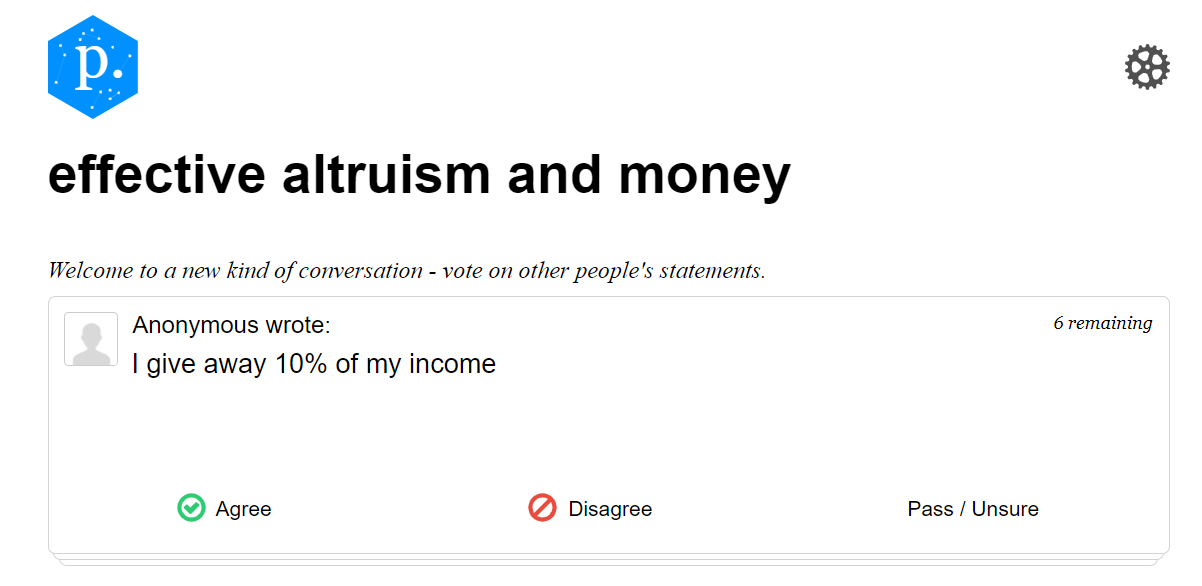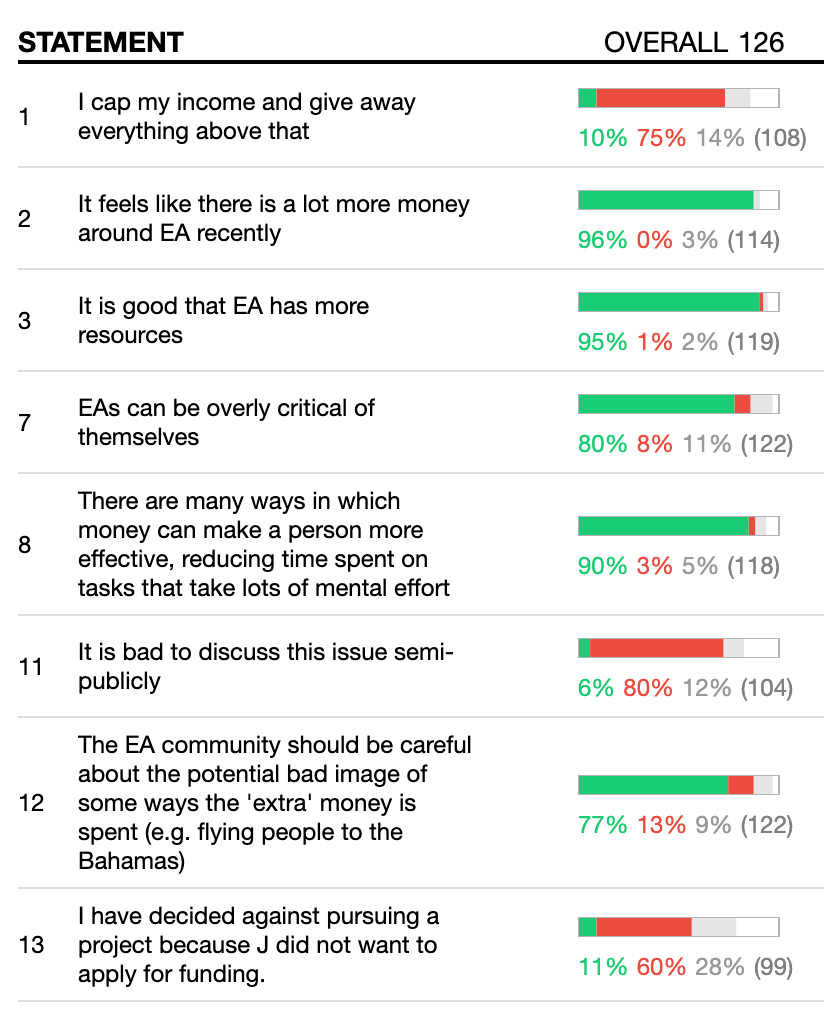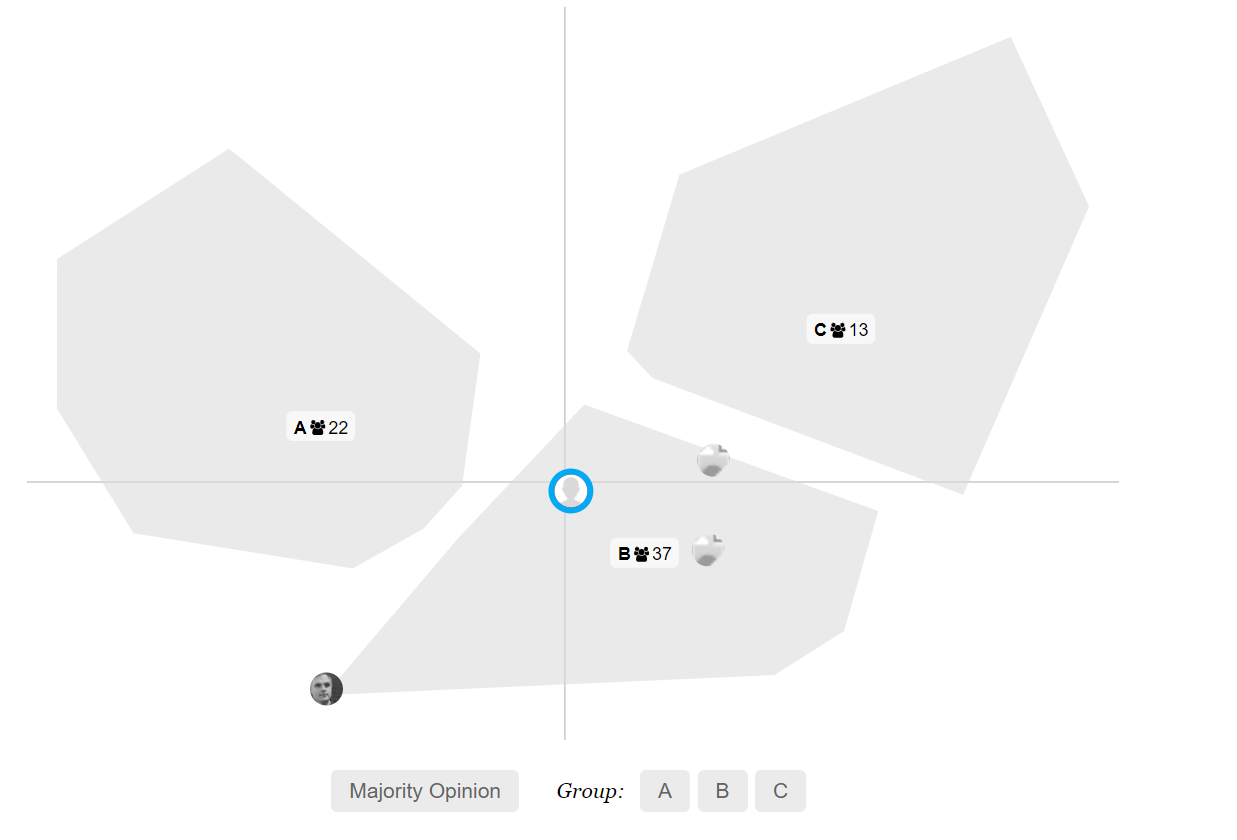Let's talk about the sharp increase in EA funding. I feel anxious about it. I don't think most of my feelings here are rational, but they do affect my actions, so it would be irrational not to take them seriously.
Some thoughts (roughly ordered from general to personal):
- More money is good. It means we have more resources to work on the world's most pressing problems. Yay
- I have seen little evidence that FTX Future Fund (FFF) or EA Infrastructure Fund (EAIF) have lowered their standards for mainline grants
- Several people have gotten in touch with me about regranting money and it seems it would be easier for the median EA to get say $10,000 in funding than it was a year ago. It's possible that this change is more to do with me than FFF though. And also, perhaps this is a good thing. I think it's positive EV to help well aligned people with finance to help them work on important projects faster.
- I'm really really really really grateful to EA Billionaries (in this case Sam Bankman-Fried) for working hard, taking risks and giving away money. I want to both express thanks and also say that working out how do deal with money as a community is important, reasonable work
- The joke "sign up to FTX Funds, I guess" is probably a bad meme. eg "I'm thinking of trying to learn to rollerblade" "sign up to FTX Future Fund?" suggests that FFF has a very low standard for entry. It is a good joke, but I don't think a helpful one.
- Perhaps my anxiety is that I feel like an imposter around large amounts of money - "you can't fund my project, I'm just me". As Aveek said on twitter, sometimes I feel "I wouldn't trust the funding strategy of any organisation that is willing to fund me". This is false, but sometimes I believe it, maybe you do to?
- Perhaps this anxiety is that I worry about EA being seen to be full of grifters. Like the person who is the wealthiest on their street, I don't want bad press from people saying "EAs are spendthrift". I don't think we are, but there is a part of the movement that does get paid more and spend more than many charity workers. I don't know what to do about this.
- My inner Stefan Shubert says "EA is doing well and this is a good thing, don't be so hard on yourself" and I do think there is a chance that this is unnecessary pessimism
- I talk about it on twitter here. I don't mind that I did this, but I think the forum is generally a better place to have the discussion than twitter. Happy to take criticism
- I have hang-ups about money in general. For several years after university I lived on about $12k a year (which is low by UK standards, though high by world ones). It's pretty surreal to be able to even consider applying for say 5x this as a salary. It's like going to a fancy restaurant for the first time ("the waiters bring the food to the table?") I just can't shake how surreal this all is.
- I think it's good to surface and discuss this but I'm open to the idea that it isn't and will blow over.
I've made a Polis poll here if you want to see how different views cluster





The subquestion of high salaries at EA orgs is interesting to me. I think it pushes on an existing tension between a conception of the EA community as a support network for people who feel the weight of the world's problems and are trying to solve them, vs. a conception of the EA community as the increasingly professional project of recruiting the rest of the world to work on those problems too.
If you're thinking of the first thing, offering high salaries to people "in the network" seems weird and counterproductive. After all, the truly committed people will just donate the excess, minus a bunch of transaction costs, and meanwhile you run the risk of high salaries attracting people who don't care about the mission at all, who will unhelpfully dilute the group.
Whereas if you're thinking of the second thing, it seems great to offer high salaries. Working on the world's biggest problems should pay as much as working at a hedge fund! I would love to be able to whole-heartedly recommend high-impact jobs to, say, college acquaintances who feel some pressure to go into high-earning careers, not just to the people who are already in the top tenth of a percentile for commitment to altruism.
I really love the EA-community-as-a-support-network-for-people-who-feel-the-weight-of-the-world's-problems-and-are-trying-to-solve-them. I found Strangers Drowning a very moving read in part for its depiction of pre-EA-movement EAs, who felt very alone, struggled to balance their demanding beliefs with their personal lives, and probably didn't have as much impact as they would have had with more support. I want to hug them and tell them that it's going to be okay, people like them will gather and share their experiences and best practices and coping skills and they'll know that they aren't alone. (Even though this impulse doesn't make a lot of logical sense in the case of, say, young Julia Wise, who grew up to be a big part of the reason why things are better now!) I hope we can maintain this function of the EA community alongside the EA-community-as-the-increasingly-professional-project-of-recruiting-the-rest-of-the-world-to-work-on-those-problems-too. But to the extent that these two functions compete, I lean towards picking the second one, and paying the salaries to match.
Fwiw that doesn't seem true to me. I think there are many people who wouldn't donate the excess (or at least not most of it) but who are still best described as truly committed.